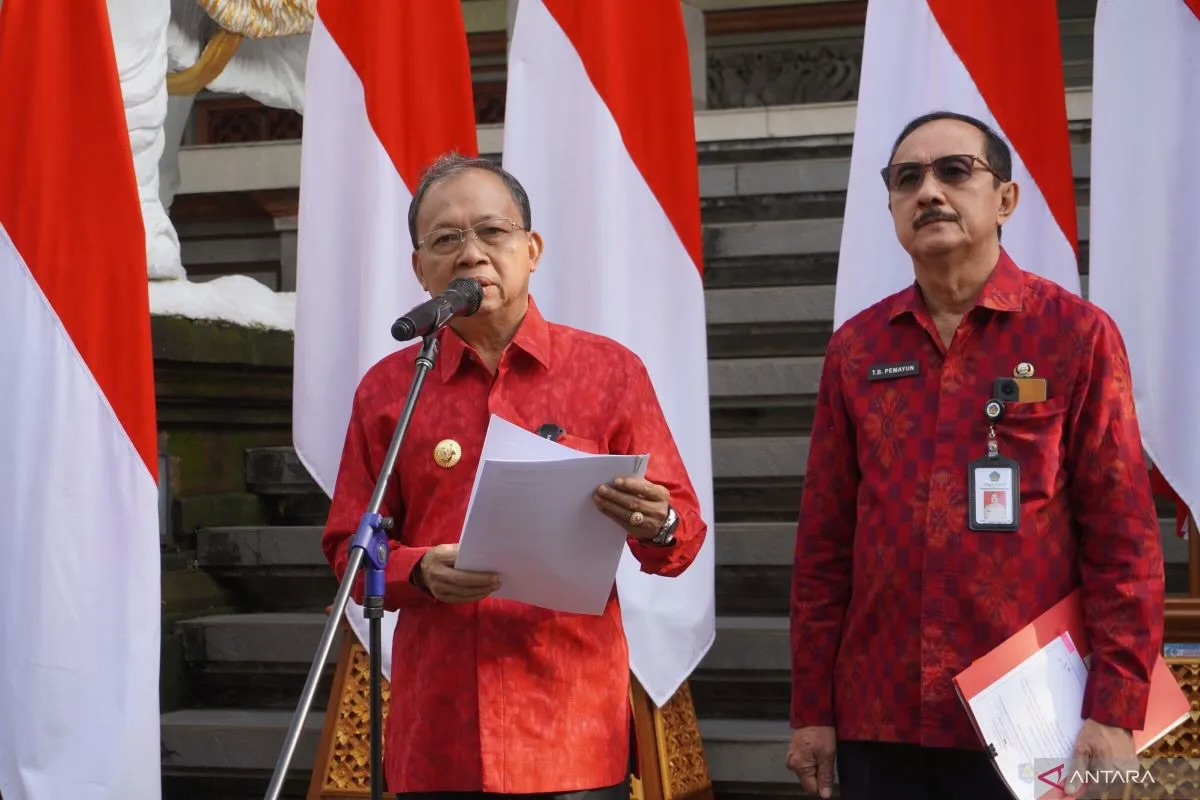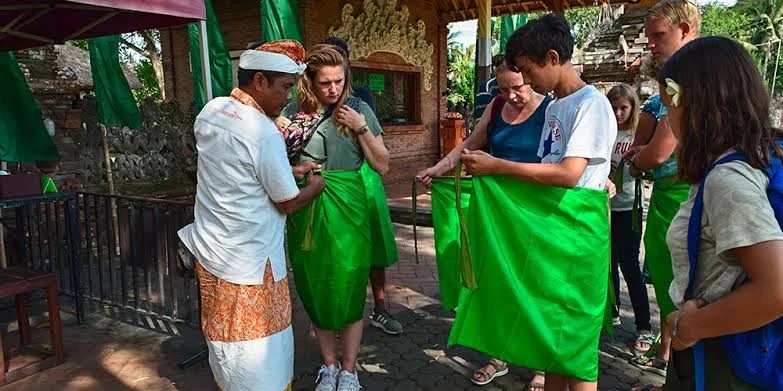Bali Governor Wayan Koster stated that Bali is currently in chaos, and if the situation continues, the island’s tourism image could be seriously damaged. His statement came in response to numerous reports of tourists breaking the rules in Bali, including a widely publicized case involving a villa used for prostitution.

According to the governor, the existing problems in Bali will be resolved step by step this year. The priority will be given to tackling traffic congestion, waste management, safety, and the inappropriate behavior of foreign tourists.
“We will take action on all aspects related to the implementation of cultural, high-quality, and dignified tourism starting this year,” Koster declared. He emphasized that he does not intend to compromise.
The governor officially issued a document titled “Circular Letter (SE) No. 07 of 2025 on New Regulations for Foreign Tourists During Their Stay in Bali.” This document is an update to the previous SE No. 4 of 2023, which was released during Koster’s first term.
The updated version is a list of rules and recommendations outlining “What you can and cannot do while traveling in Bali.”
Tourists must:
• Respect local customs, traditions, arts, and culture.
• Dress modestly and appropriately when visiting sacred sites, tourist attractions, and public spaces.
• Pay the tourism tax (this can be done online at lovebali.baliprov.go.id).
• Use licensed tour guides when visiting tourist attractions.
• Exchange foreign currency only at authorized money changers approved by Bank Indonesia (look for signs reading “Authorized Money Changer”).
• Use the Indonesian standard QR code for transactions.
• Obey traffic regulations, including holding a valid international or national driver’s license.
• Stay in licensed accommodations and use official transportation services.
Tourists are prohibited from:
• Entering sacred sites unless praying and only in traditional Balinese attire.
• Climbing sacred trees or acting disrespectfully in sacred places.
• Littering or using single-use plastic.
• Working or conducting business in Bali without proper permits.
• Engaging in illegal activities, including trading flora, fauna, and cultural artifacts.
• Using offensive language, displaying aggressive behavior, or spreading hate speech on social media.

Koster emphasized that this circular is not just a symbolic gesture; its enforcement will be overseen by a special unit of Bali’s civil police. Foreign tourists found violating the rules will face strict consequences. “We have prepared a special task force for this operation. Unruly foreign tourists will be dealt with immediately and firmly,” Koster said.
A hotline is already in operation. The public is encouraged to report any violations via WhatsApp at +62 812 875 909 99. Bali’s civil and regional police have been officially instructed to exercise strict supervision and take decisive action against any offenses committed by foreigners in Bali.
“I’m not afraid, because this is my second term. I don’t care if someone gets angry. This is to make sure Bali becomes more orderly in the future,” Koster stressed. By law, the governor cannot run for a third term, so Koster is no longer constrained by concerns about reelection.

Koster also promised to impose strict sanctions against illegal villa rentals: “There are reports of foreign tourists living there without paying hotel and restaurant taxes. There are many such villas, and in the future, they must be regulated and have proper permits.”
The regulation of tourism facilities will be a priority in the program he has prepared. The provincial government of Bali will identify tourist facilities — hotels, villas, restaurants, beach clubs, karaoke spots, and spas — that violate regulations and hold them accountable.
“We will inspect exclusive (foreign) villages, some of which operate without licenses, and determine whether workers have Balinese identity cards. We will also monitor how many of the employees are locals and ensure that operating hours don’t exceed 10:00 PM, as this disturbs both tourists and residents,” said Koster.
He promised that order will be enforced based on existing regulations and assured support for local communities. Authorities will also ensure that foreign nationals do not exploit local residents to obtain licenses. At least 90 percent of employees are expected to be from Bali, and working hours will be restricted.
The governor will give law enforcement the authority to penalize violators and allow traditional villages to supervise and establish their own pararem (traditional behavior guidelines).
Koster also highlighted the issue of waste produced by hotels in Bali. The Bali government will now publicly name restaurants and hotels that fail to manage waste properly. These businesses will face sanctions.
Solving the waste problem will be part of an urgent priority program, one step of which will be accelerating waste management in hotels, restaurants, malls, places of worship, educational institutions, traditional markets, offices, and tourist sites. Business owners will undergo large-scale training on waste management and will be required to create special teams to handle waste disposal.




You can add one right now!